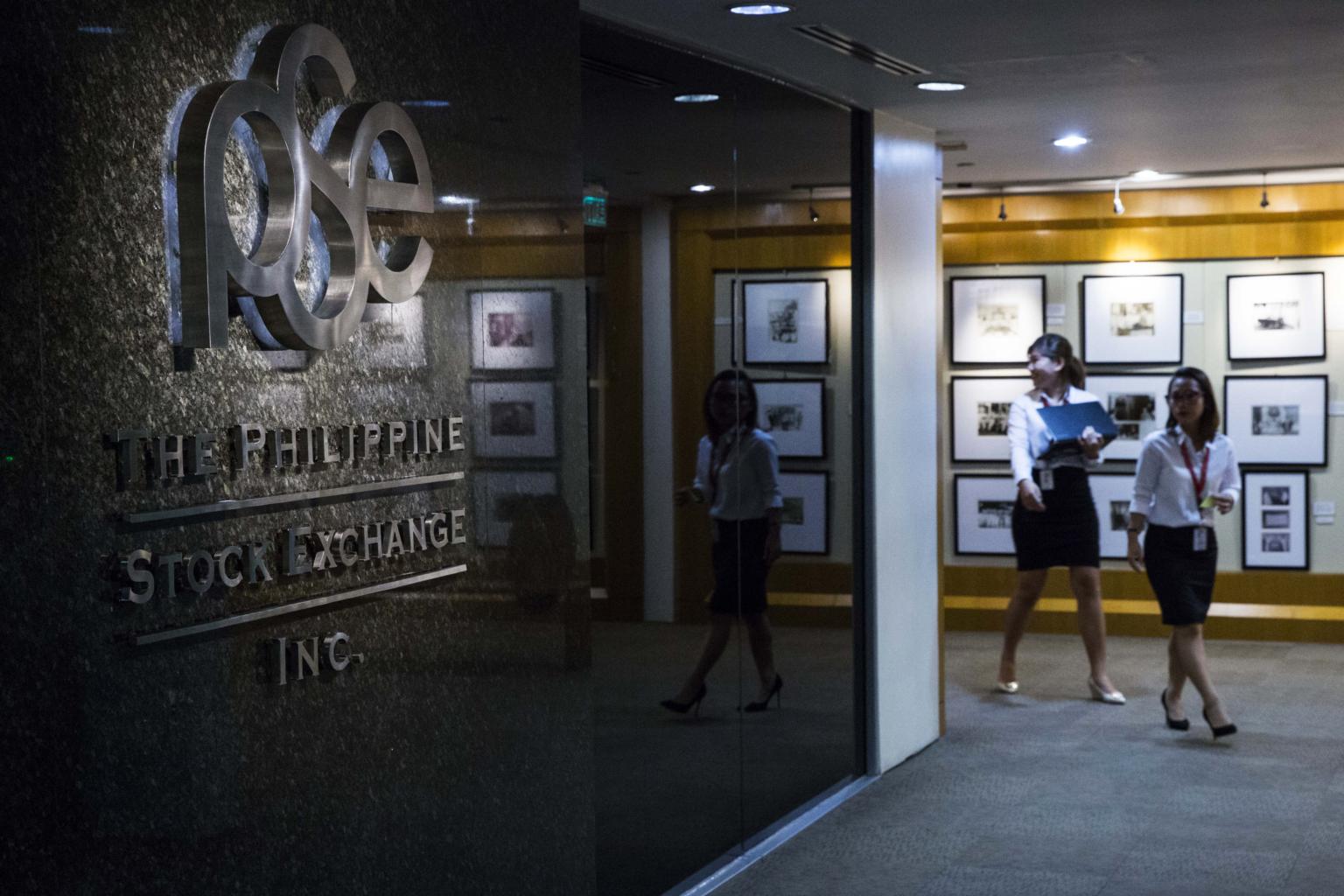Philippines record plunge shows risks of shuttering stock market
Sign up now: Get ST's newsletters delivered to your inbox

The Philippine Stock Exchange Index opened with a 24 per cent drop in Manila.
PHOTO: BLOOMBERG
Follow topic:
MANILA (BLOOMBERG) - Philippine stocks' record 13.3 per cent slump on Thursday (March 19) following an unusual two-day shutdown signals the risks associated with controversial moves to halt trading.
The Philippine Stock Exchange Index plunged as much as 24 per cent in Manila before closing at the lowest level since January 2012, bringing its valuation to the lowest level in 11 years. The declines came ahead of the central bank's decision to cut its key rate by 50-basis points and amid concerns that a 27 billion peso (S$763.7 million) fiscal stimulus won't be enough to tackle the spread of the coronavirus.
"The two-day shutdown closed the doors to investors who were headed for the exit," said Manny Cruz, strategist at Papa Securities. "The money that wanted to go out got accumulated and investors got scared and lost confidence they can go out anytime they want so they took this resumption as an opportunity to rush to safety."
The closure of equity, currency and bond markets started on Tuesday, following the government's decision on Monday to widen a month-long lockdown of the capital region to cover the country's main Luzon island, home to at least 57 million people.
"We knew there will be a lot of selling, that foreigners are going to sell, but we have to open and show the world that the Philippine economy is running despite the scary atmosphere," said Wilson Sy, a director at the Philippine Stock Exchange and manager of Philequity Fund on Thursday.
Foreign investors have sold US$480.5 million (S$693 million) net of local stocks this year, the fastest withdrawals since Bloomberg began tracking the data in 1999. A US-listed exchange-traded fund that tracks Philippine shares sank by a record 19 per cent on Monday after the bourse announced it was shutting, before rebounding 8.1 per cent on Tuesday. It fell 10 per cent on Wednesday in New York.
The Philippine stock exchange said on Thursday the bourse is considering revising the circuit-breaker rule as a temporary measure to address market volatility.
"It is a very grim situation right now," said Rachelle Cruz, an analyst at AP Securities. "You have fear of a recession globally, cases of infections locally are rising and it seems foreign investors didn't like the shutdown and have become more wary."
The Philippines has 202 confirmed infections so far, with 17 deaths. The nation's central bank governor, Benjamin Diokno, said Wednesday there will be "large and protracted" adverse economic impact if the Luzon-wide community quarantine to fight the virus outbreak fails.
Many of the biggest Philippine companies have already taken a hit. Property giant SM Prime Holdings has shut 63 of its 74 shopping malls. Retailer Robinsons Retail Holdings, which has many stores in malls, has also warned of slower earnings growth due to the public health emergency.
A prolonged pandemic could send the gauge down 56 per cent, matching its slump from peak to trough during the 2008 global financial crisis, said Jun Calaycay, a strategist at PhilStocks Financia. Since a record high in January 2018, the gauge has already tanked 49 per cent.
"It's hard to say whether we have hit a bottom for there are still many headwinds ahead," Calaycay said. While the inflow from the government's financial institutions will provide some support, "what is certain is we are in a bear territory that could last until the virus is contained," he added.

